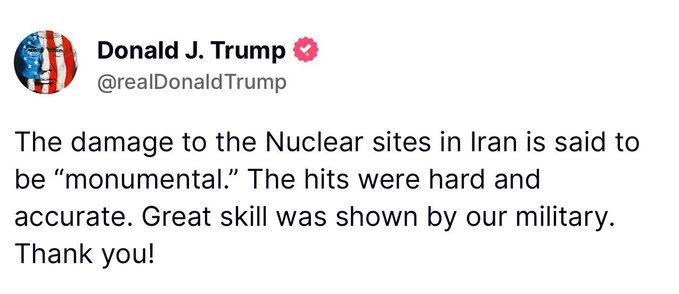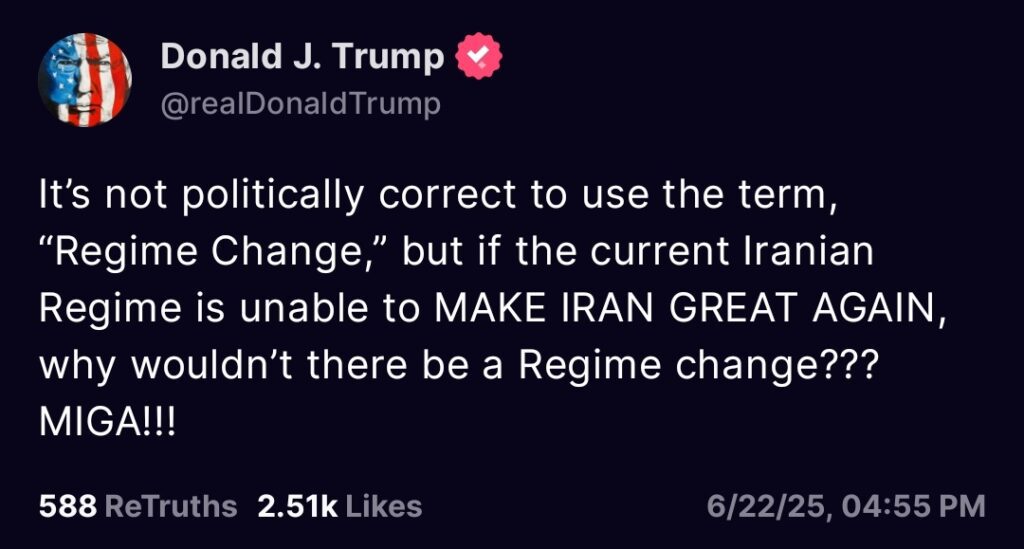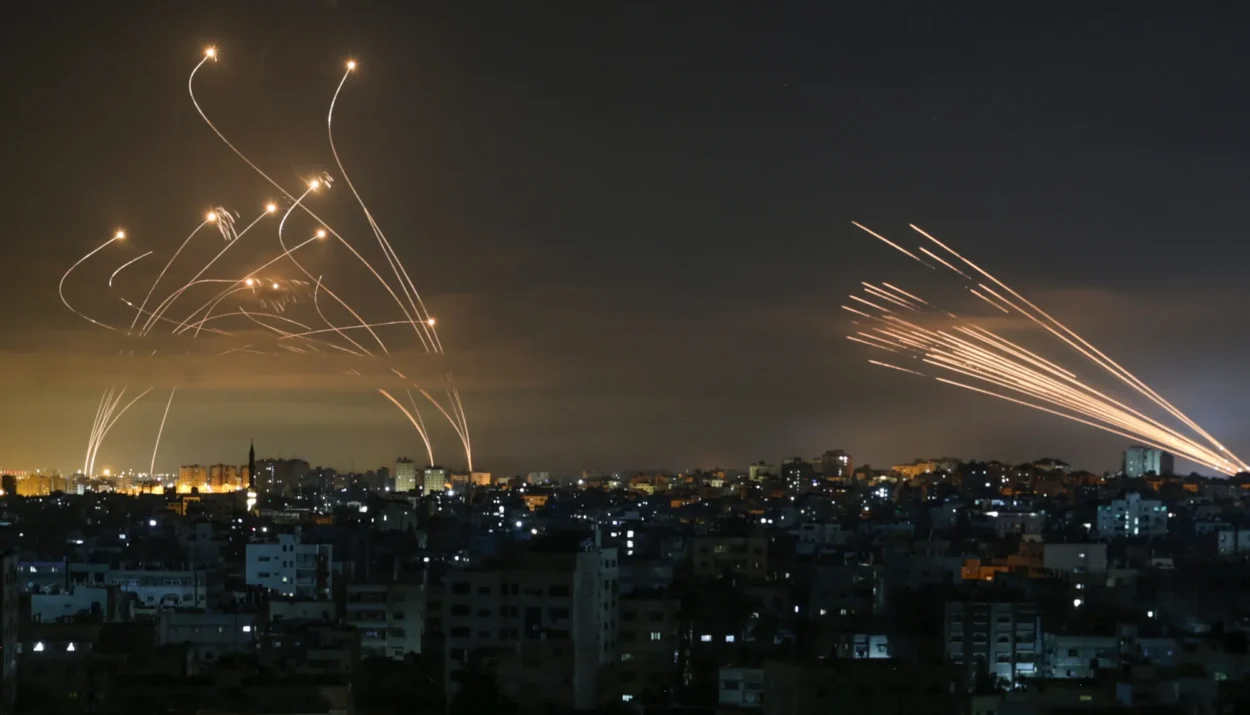On Sunday, President Trump launched “Operation Midnight Hammer,” ordering B-2 stealth bombers and Tomahawk missiles to strike three key Iranian nuclear facilities. The operation followed Israeli strikes on military assets in Kermanshah, Hamedan, and Parchin, a major complex near Tehran.
Iran responded by firing missiles toward Israel, triggering sirens and shelter alerts. Only one missile is confirmed intercepted so far. The Iranian Armed Forces’ Central Command issued a chilling warning:
“Mr. Trump, the gambler — you may start this war, but we will be the ones to end it.”
Strait of Hormuz: Global Oil Chokepoint Under Threat
Iran’s parliament has voted to approve closing the Strait of Hormuz, pending a decision by the Supreme National Security Council.
- The narrow waterway carries 20% of the world’s oil supply, or 20 million barrels per day.
- China, which buys 90% of Iranian oil exports, is highly exposed. Over 5.4M barrels/day of its imports came through Hormuz in Q1 2025.
- US Secretary of State Marco Rubio warned Beijing to intervene: “They depend on Hormuz more than we do.”
Brent crude surged over $80, with analysts warning of a spike to $100+ if the Strait is shut down.

Damage Report: Success or Setback?
Despite Trump’s claims of “monumental damage” and a “bullseye,” analysts are skeptical:
- Fordow: Hit by 12 bunker-buster bombs, likely seriously impaired.
- Isfahan: Struck by Tomahawks, not bunker-busters — Iran’s 60% enriched uranium stockpile likely still intact.
- Natanz: Damage unconfirmed; satellite reviews ongoing.
Jeffrey Lewis, weapons expert, called it an “incomplete strike,” warning:
“If this is it, Iran still has the core of its nuclear material underground.”
Khamenei Cornered: Survival vs. Defiance
Iran’s Supreme Leader Ali Khamenei, now 86, faces perhaps his greatest crisis in over 35 years of rule.
“He’s in a bunker… outmatched militarily, financially, technologically,” said analyst Karim Sadjadpour.
Domestic protests are spreading, and calls to withdraw from the Nuclear Non-Proliferation Treaty (NPT) are gaining traction — a signal Iran could openly pursue nuclear weapons.
International Fallout: Allies Support, Neighbors Alarmed
Western allies offered cautious backing:
- UK PM Starmer: “Iran can never be allowed to develop a nuclear weapon.”
- Australia & Japan: Support the strike but urge de-escalation.
- France: Not involved; “very firm opposition to Iranian nukes.”
Gulf states — Saudi Arabia, Qatar, Kuwait — voiced concern, called for restraint, and warned of “catastrophic escalations.”
Inside Washington: Legal Gray Area and Political Divide
- Trump used Article II powers to launch the strikes without Congress.
- DOJ says more extended conflict may require Congressional approval.
- Trump misled media with a fake “2-week decision window” to conceal planning, according to White House insiders.
The move split Republicans:
- MAGA hardliners like Marjorie Taylor Greene criticized it: “This is not our fight. Peace is the answer.”
- But others rallied around Trump, including Israel’s envoy, who called the strikes a blow to “the greatest existential threat to the free world.”
Bernie Sanders condemned the action as another Iraq-style misadventure:
“That war was based on a lie. We cannot let history repeat itself.”

Trump Drops the Mask: ‘Why Not Regime Change?’
On Truth Social, Trump suggested his real goal may not be just Iran’s nukes:
“If the current Iranian regime is unable to MAKE IRAN GREAT AGAIN… why wouldn’t there be a regime change???”
This contradicts Defense Secretary Pete Hegseth’s line:
“This is not about regime change.”

Airport Restrictions and Global Alerts
- Ben Gurion Airport in Israel resumes limited outbound flights.
- US State Department issues worldwide alert for Americans abroad.
- Homeland Security warns of increased risk of cyber and lone-wolf attacks on US soil.
Market Watch:
- Oil: Brent > $80, potential to spike if Hormuz closes.
- Stocks: Dow, S&P 500, Nasdaq futures down 0.6%–0.7%.
- USD: +0.3% on safe-haven flows.
What to Watch Next
- Will Iran close the Strait of Hormuz and spark a global oil crisis?
- Will Trump escalate further if Iran retaliates again?
- Can diplomacy survive — or is the region heading into a full-scale war?
- And is the US now openly drifting toward regime change in Tehran?
Disclosure: This article does not represent investment advice. The content and materials featured on this page are for educational purposes only.
Related:
US-Iran Conflict Escalates After Strikes on Nuclear Sites: What We Know So Far
US Hits Iran’s Nuclear Sites — Iran Strikes Back as War Escalates
Rising oil prices, inflation fears, and geopolitical volatility unsettle investors










